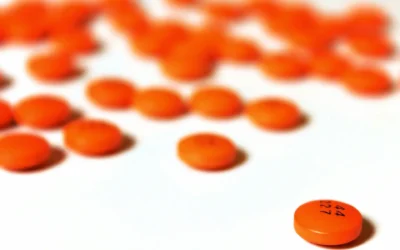Diabetic nephropathy, commonly known as diabetic kidney disease, is a serious kidney-related complication of type 1 and type 2 diabetes. It refers to the damage that diabetes can cause to the kidneys, affecting their proper functioning and even leading to kidney failure in severe cases.
Overview
Approximately 40% of people with diabetes will develop kidney disease. The kidneys play an essential role in filtering wastes and excess fluids from the blood, which are then excreted in the urine. However, elevated blood sugar levels in diabetes can impair this filtering process, causing a buildup of waste products in the bloodstream.
Symptoms
Diabetic nephropathy often begins long before symptoms appear. As the disease progresses, symptoms might include:
- Swelling of the ankles, feet, and legs.
- Fatigue and weakness.
- Shortness of breath.
- Nausea and vomiting.
- Frequent urination, especially at night.
- Persistent itching.
- Loss of appetite.
Causes
The primary cause of diabetic nephropathy is poorly controlled blood sugar. Over time, high blood sugar can damage the millions of tiny filtering units within each kidney.
Risk Factors
Factors that may increase the risk of developing diabetic nephropathy include:
- Duration of diabetes: The longer one has diabetes, the greater the risk.
- Poor blood sugar control.
- High blood pressure.
- Smoking.
- Type 1 or type 2 diabetes.
- Family history of kidney disease.
Preventing Diabetic Nephropathy
While diabetic nephropathy cannot always be prevented, the risk can be minimized:
- Blood Sugar Control: Regularly monitoring and maintaining blood sugar levels within the recommended range is crucial.
- Blood Pressure Management: Keeping blood pressure under control can help reduce strain on the kidneys.
- Regular Check-ups: Annual screenings for kidney function for those with diabetes can detect problems early.
- Healthy Lifestyle: Following a balanced diet, engaging in regular exercise, avoiding tobacco, and limiting alcohol can be beneficial.
When to See a Doctor
Early detection is vital. Regular check-ups with a doctor, especially if one has diabetes, is crucial. Specific indicators that should prompt immediate medical attention include:
- Increased swelling in the legs or feet.
- Increased shortness of breath.
- Unusual fatigue or weakness.
- Persistent nausea.
- Elevated blood pressure.
Treatment and Management
The main goal of treatment is to prevent or slow the progression of kidney damage. This usually involves:
- Medications: Drugs to lower blood pressure and protect kidney function.
- Dietary Changes: Reducing dietary protein and salt can help slow kidney damage.
- Blood Sugar Management: Insulin or other medications can be crucial for blood sugar control.
Complications
If diabetic nephropathy progresses, it might lead to kidney failure, requiring dialysis or a kidney transplant. It can also cause other complications like cardiovascular diseases, damage to the retina, anemia, or nerve damage.
Living with Diabetic Nephropathy
Managing diabetic nephropathy is a lifelong commitment. Regular doctor visits, medications, dietary changes, and constant monitoring become a norm. Emotional and psychological support from family, friends, or support groups can be invaluable.
Research and the Future
Ongoing research is studying ways to detect diabetic kidney disease at its earliest stage. Newer medications and therapies are being explored to slow or prevent the development of diabetic nephropathy.
Pathophysiology of Diabetic Nephropathy
Diabetic nephropathy’s onset and progression involve multiple interconnected pathways, but the principal factor is prolonged exposure to high blood sugar. This leads to:
- Glomerular Hyperfiltration: This refers to the kidneys’ increased filtering capacity. Initially, it might seem beneficial, but over time, it stresses the kidneys.
- Thickening of the Glomerular Basement Membrane: The basement membrane acts as a filter. Its thickening compromises this function.
- Expansion of Mesangial Cells: These cells play a role in the structural integrity of the glomeruli (kidney’s filtration units). Their expansion reduces the filtering surface.
- Podocyte Damage: Podocytes are vital cells in the kidney’s filtration barrier. Damage to them can lead to protein leakage into the urine, a hallmark sign of kidney damage.
Stages of Diabetic Nephropathy
- Stage 1 (Hyperfiltration): The kidneys increase their filtering, leading to an elevated glomerular filtration rate (GFR).
- Stage 2 (Silent): Kidney size may increase, and the glomeruli start showing damage under a microscope, but there are usually no clinical symptoms.
- Stage 3 (Incipient nephropathy): Microalbuminuria (small amounts of protein) starts appearing in the urine.
- 4 (Overt nephropathy):** Protein leakage into the urine becomes more significant, resulting in macroalbuminuria. Blood pressure may rise, and kidney function slowly declines.
- Stage 5 (End-stage renal disease, ESRD): At this final stage, kidney function is severely compromised or absent, requiring interventions like dialysis or transplantation.
Genetic Predisposition and Diabetic Nephropathy
While diabetic nephropathy occurs due to high blood sugar, not everyone with diabetes develops it. Genetics play a crucial role. Certain genes linked with diabetes, blood pressure regulation, and kidney function make some individuals more susceptible. Familial clustering of diabetic nephropathy further supports the genetic connection.
Quality of Life and Diabetic Nephropathy
The impact of diabetic nephropathy isn’t just physical; it’s profoundly emotional and psychological:
- Depression and Anxiety: Facing a chronic disease that can lead to kidney failure induces significant stress. Patients frequently report feelings of hopelessness, fatigue, or desolation.
- Dietary Restrictions: Managing kidney disease often requires severe dietary changes. Limiting fluid intake, salt, protein, and certain nutrients can feel very restrictive and impact social dining experiences.
- Financial Strain: Treatments, medications, and regular medical visits can be expensive, especially if the condition progresses to ESRD, requiring dialysis or transplantation.
Advancements in Treatment
Emerging treatments and studies are looking beyond just controlling blood sugar and hypertension:
- Anti-inflammatory drugs: Since inflammation plays a role in kidney damage, specific anti-inflammatory drugs are being studied for their potential benefits.
- Antioxidants: Oxidative stress is believed to contribute to kidney cell damage. Antioxidants, which counteract this, are being investigated as potential therapeutic agents.
- Stem Cell Therapy: Preliminary studies are exploring the potential of stem cells in repairing damaged kidney tissues and improving function.
The Importance of Patient Education
Ensuring that patients are informed about the progression and management of diabetic nephropathy is crucial. Understanding the disease can make them more compliant with medications, dietary restrictions, and lifestyle changes. Regular workshops, counseling sessions, and patient handbooks can be valuable tools.
Diabetic nephropathy’s comprehensive understanding necessitates a multi-dimensional approach. Beyond medical treatment, there’s an emphasis on holistic care, incorporating mental well-being, dietary management, patient education, and exploring innovative treatments. It underscores the need for an integrated healthcare approach for patients, with active participation in their care journey.









